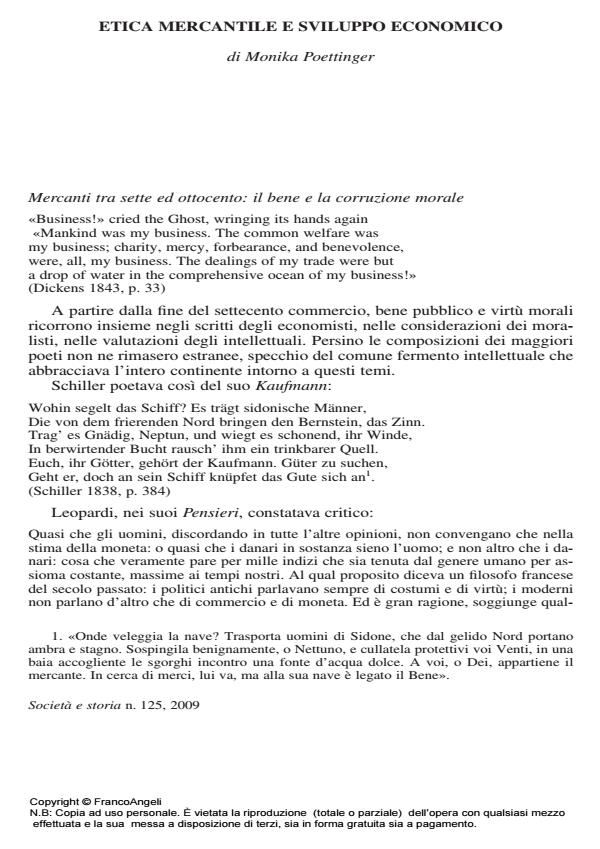Etica mercantile e sviluppo economico
Journal title SOCIETÀ E STORIA
Author/s Monika Poettinger
Publishing Year 2009 Issue 2009/125
Language Italian Pages 38 P. 465-502 File size 765 KB
DOI 10.3280/SS2009-125004
DOI is like a bar code for intellectual property: to have more infomation
click here
Below, you can see the article first page
If you want to buy this article in PDF format, you can do it, following the instructions to buy download credits

FrancoAngeli is member of Publishers International Linking Association, Inc (PILA), a not-for-profit association which run the CrossRef service enabling links to and from online scholarly content.
Merchant ethics and economic development - Up to the nineteenth century, merchants extended networks of subsidiaries, correspondents and investments world-wide, becoming a major trigger of innovation and economic development. To guarantee the functioning of their international merchant houses, they had to adhere to a strict moral code. The resulting "moral communities" diffused everywhere the "merchant´s liberty": working to fulfil oneself, striving to obtain economic independence and richness as social recognition. As the Ancien Régime neared its end, merchants were ready to economically and morally guide society into a new era. At the same time as many discussed the noblesse commerçante, though, philosophers and economists ridiculed merchant virtues, transforming merchants in men bent only on profit and self-interest. The industrialist, so, became the bourgeoisie´s myth and merchant ethics vanished from the agenda of historians and economists alike. Industrialization thusly lost one of its main characters and economy missed a catalyst of innovation and social capital formation.
Keywords: Ethics; merchant; XIX century; industrialization.
- La storia economica contemporanea in quaranta anni di "Società e storia" Marco Doria, in SOCIETÀ E STORIA 178/2023 pp.783
DOI: 10.3280/SS2022-178007
Monika Poettinger, Etica mercantile e sviluppo economico in "SOCIETÀ E STORIA " 125/2009, pp 465-502, DOI: 10.3280/SS2009-125004